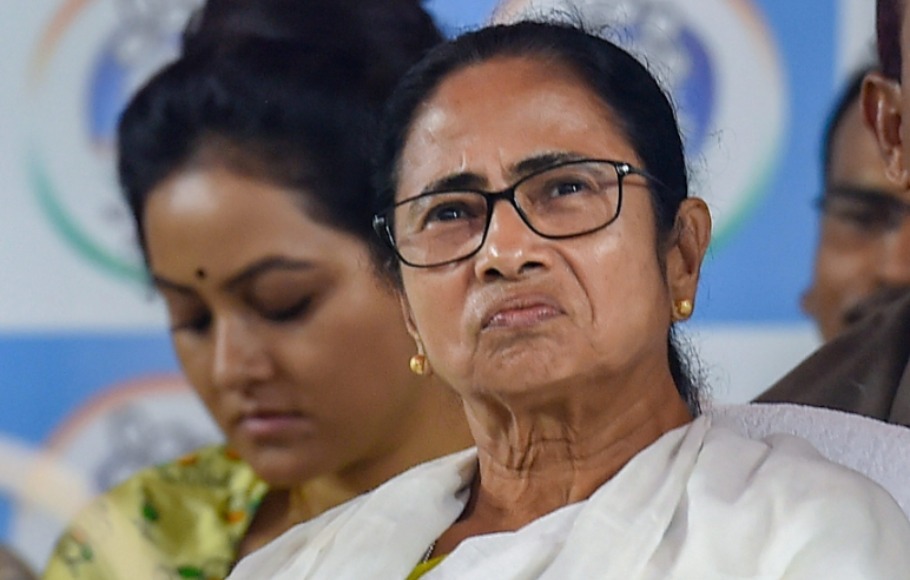
Bengal does a balancing act to deal with COVID amid plunging revenues
Almost all revenue-earning activities in the state have been stalled for about a month, severely straining the state exchequer. At the same time, the state has to cough up additional expenses to battle the COVID-19 pandemic.

The West Bengal government is walking a tightrope to balance its additional spending with revenue fall in the wake of the COVID-19 outbreak.
Almost all revenue-earning activities in the state have been stalled for about a month, severely straining the state exchequer. At the same time, the state has to cough up additional expenses to battle the COVID-19 pandemic.
The state’s GST collection in March dipped to ₹3,582 crore from ₹3,942 crore in February, a loss of ₹360 crore. The fall is considered to be staggering as the state went into a complete lockdown from March 24 and closure of all restaurants, bars, pubs, nightclubs, amusement parks, museums and zoos too came into effect only from 6 pm of March 22.
Related news: How slipshod handling of cases is upping Bengal’s COVID-19 cases
In April, the plunge will be stiffer, considering that the state has been under lockdown for an entire month now, with partial relaxation being granted only from April 20, said a senior official finance department. GST contributes up to 70 per cent of the state’s revenues.
Emergency fund vs plummeting revenue
The deferment of GST return filing dates would create a severe fiscal problem for the state in the coming months, he said.
Even as the revenue plummeted, the state was forced to create a ₹200-crore emergency fund to deal with the health crisis. The government also introduced ₹10 lakh health insurance cover for doctors, nurses, other health workers, sanitation workers and security forces.
A new scheme Prochesta (effort) has also been introduced under which ₹1,000 will be given to about six million workers in the unorganised sector to help them make ends meet during the lockout period. Another scheme — Sneher Parash (touch of affection) — is launched to give ₹1,000 each to migrant workers from Bengal who are stranded in other states. So far a data bank of over 30,000 such workers have been prepared for cash transfer.
“Additional expenses are also incurred to ramp up existing health infrastructures and to procure medical equipment and safety gear,” the official said.
3-pronged strategy to handle crisis
To tide over the fiscal crisis, the finance department has devised a three-pronged approach, the official said. First of all, it has adopted certain austerity measures and also tried to augment other revenue sources. Besides, the finance department is also putting pressure on the Centre to release pending goods and services tax (GST) dues and hike the borrowing limit.
All non-essential purchases such as vehicles, furniture, TVs, ACs, computers and IT related accessories among others have been frozen. In a memorandum, the government has directed all the departments not to take up any new schemes and “urgent public interest programmes” will require prior approval of the finance department. The government has also put restrictions on recruitment and withdrawal from the General Provident Fund (GPF).
Related news: Locked down, migrants are running out of hope
“There shall be no recruitment/engagement of manpower unless approved by the finance ministry, and all journeys by officials should be as per the entitled class. There will be no payment of house building advance in respect of all India officers like IAS, IPS and withdrawal from GPF will be allowed only in case of education, treatment and marriage,” the government’s directive said.
To shore up revenue, the government has introduced an e-registration facility so that people can buy and sell properties without visiting the registration office during the lockdown period. It has also announced a 20 per cent discount on the registration value of the properties for those who will apply for e-registration, with a ceiling of ₹20,000. In the state, the registration fee is 1 per cent of the deed value.
Banking on liquor tax, central aid
In another bid to mobilise additional revenue, the state government with effect from April 9 imposed 30 per cent sales tax on wine and beer, the finance department official said. The state government had withdrawn the sales tax and instead introduced additional excise duty on liquor after GST was imposed in July 2017.
Now the state government in a notification, issued on April 7, reintroduced the sales tax, which will be charged in addition to the existing excise duties. As of now, however, sales of liquor are closed due to the lockdown.
Meanwhile, the West Bengal government has also urged the Centre to release ₹5,013 crore revenue-deficit grant provided by the 15th Finance Commission to the state and provide a financial package of ₹1,500 crore to deal with the COVID-19 outbreak.
The Centre, earlier this month released around ₹1,600 crore for the state as the GST compensation for the last October-November period, finance department sources said.
Related news: Bengal govt writes to MHA, assures cooperation to visiting central teams
Another set of pending dues of ₹2,875 crore include compensation for some part of October and November and months till March.
The state has further sought relaxation in the fiscal deficit limits from current 3 per cent to 4 per cent of the gross state domestic product (GSDP) so that it can make an additional borrowing.

